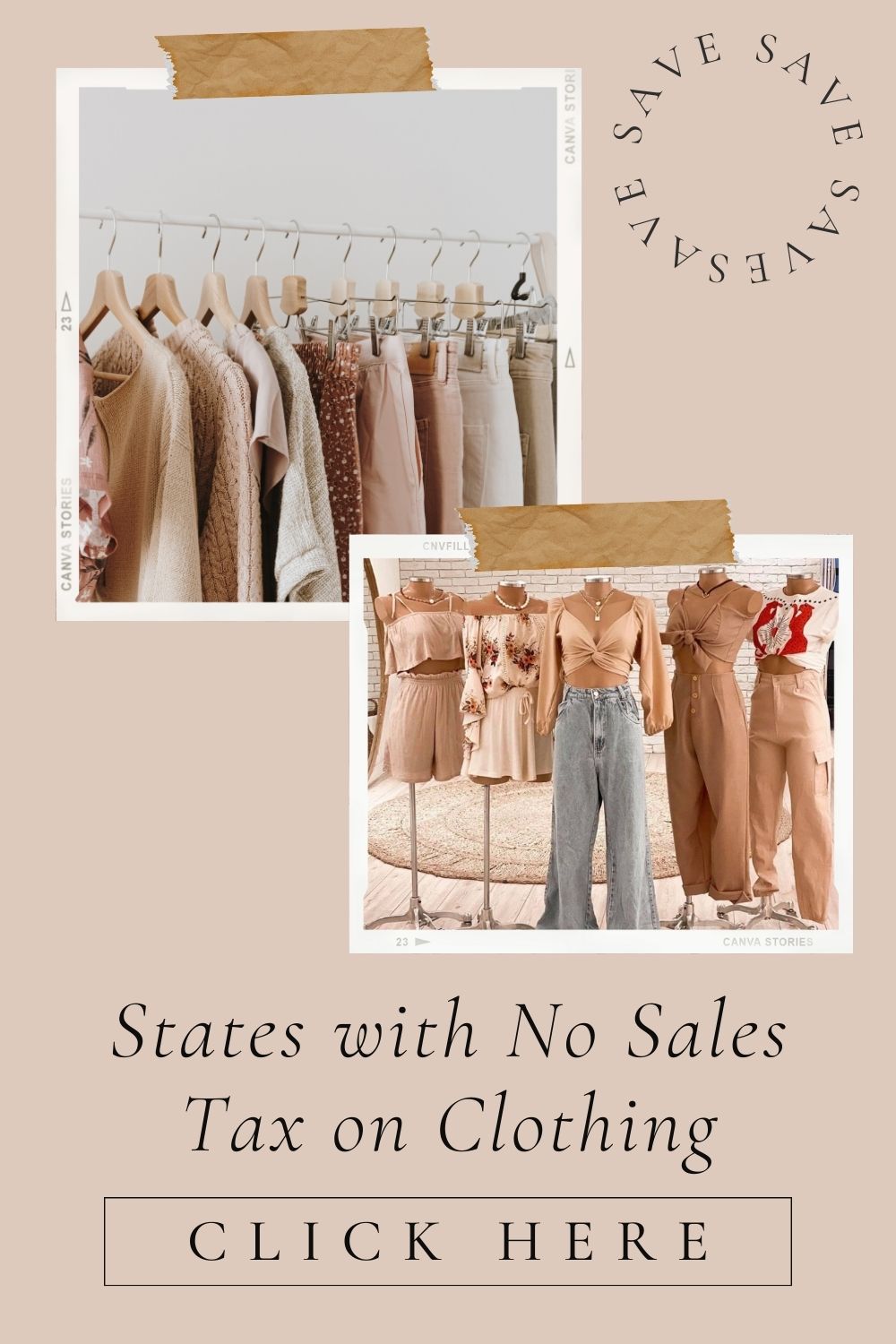Paying no sales tax on clothing can be a great way to save money, especially if you frequently purchase apparel for yourself or your family. There are several methods to achieve this, including shopping in states that do not impose sales tax on clothing, taking advantage of state tax holidays, and utilizing tax exemptions for resellers. Here’s a comprehensive guide to help you navigate these options.
Contents
States with No Sales Tax on Clothing
Certain states in the U.S. do not charge sales tax on clothing, which can result in substantial savings. Here are some of these states:
- Delaware: Delaware does not impose any sales tax on goods, including clothing.
- Montana: Like Delaware, Montana has no state sales tax.
- New Hampshire: This state does not have a sales tax on any items, including clothing.
- Oregon: There is no sales tax in Oregon, making it a tax-free haven for clothing shoppers.
States with Partial Exemptions or Limits
Some states offer partial exemptions or tax-free allowances on clothing purchases:
- Minnesota: Clothing is generally exempt from sales tax, but accessories, sports equipment, and certain other items are taxable.
- New Jersey: Most clothing items are exempt from sales tax, but certain items like formal wear rentals and accessories are taxable.
- Pennsylvania: Most clothing is tax-exempt, though formal wear, accessories, and some sports apparel are subject to sales tax.
State Tax Holidays
Many states offer tax holidays, specific periods during which certain items, including clothing, are exempt from sales tax. Here are some notable examples:
- Florida: Typically holds a back-to-school tax holiday in August, where clothing up to a certain amount (e.g., $60) is tax-free.
- Texas: Offers a tax-free weekend in August, with clothing and footwear priced under $100 exempt from sales tax.
- Massachusetts: Hosts a tax-free weekend usually in August, where most retail items under $2,500, including clothing, are exempt from sales tax.
- New York: Conducts a tax-free week during the back-to-school season, with clothing and footwear up to $110 exempt from sales tax.
- Virginia: Holds a combined sales tax holiday for school supplies, clothing, and emergency preparedness items, typically in August.
Tax Exemption for Resellers
If you are a reseller, you may qualify for tax exemptions on your clothing purchases. To take advantage of this, follow these steps:
- Obtain a Reseller’s Permit: Apply for a reseller’s permit from your state’s tax authority. This permit allows you to purchase items for resale without paying sales tax.
- Provide Your Permit at Purchase: When buying clothing for resale, present your reseller’s permit to the retailer to avoid paying sales tax.
- Keep Accurate Records: Maintain detailed records of your purchases and sales to ensure compliance with state tax laws and to facilitate easy reporting.
Other Ways to Save
- Online Shopping: Some online retailers do not charge sales tax on clothing if they do not have a physical presence in your state. Always check the tax policies of the retailer before making a purchase.
- Second-Hand Stores: Shopping at thrift stores or consignment shops can often result in lower prices and reduced or no sales tax on clothing.
- Out-of-State Shopping: If you live near the border of a state with no sales tax on clothing, consider shopping there to take advantage of the tax-free benefits.
Conclusion
By being aware of the states that offer no sales tax on clothing, taking advantage of state tax holidays, and utilizing tax exemptions for resellers, you can significantly reduce or even eliminate the sales tax on your clothing purchases. Whether shopping online or planning a trip to a neighboring state, these strategies can help you keep more money in your pocket while still enjoying your favorite fashion finds.
Featured Image Credit: Deposit Photos







